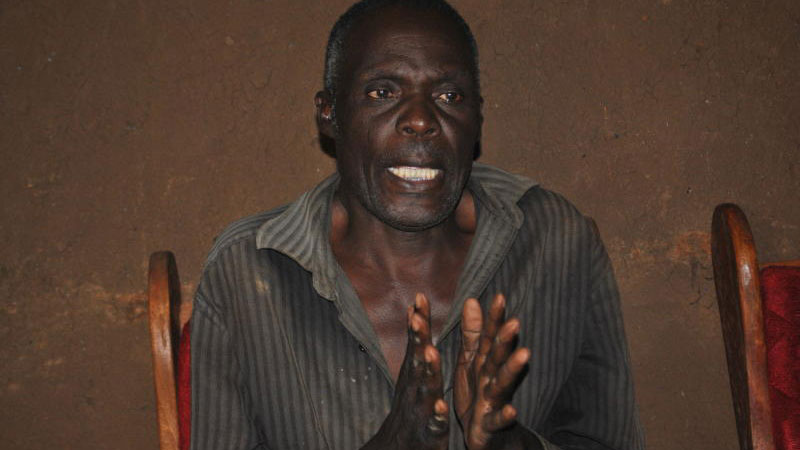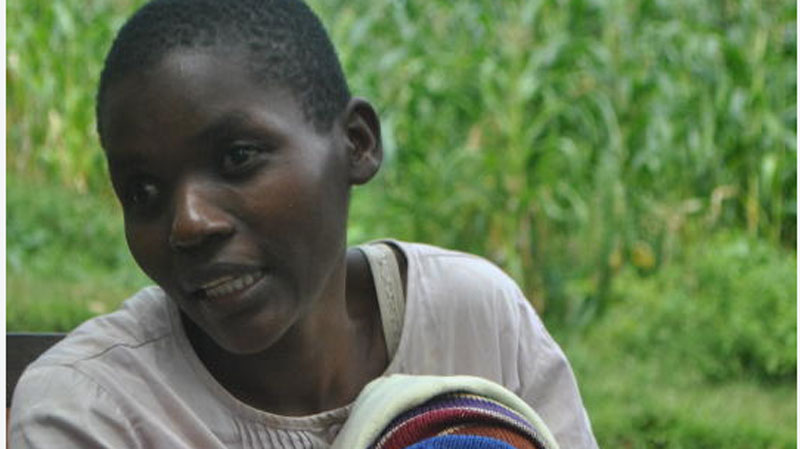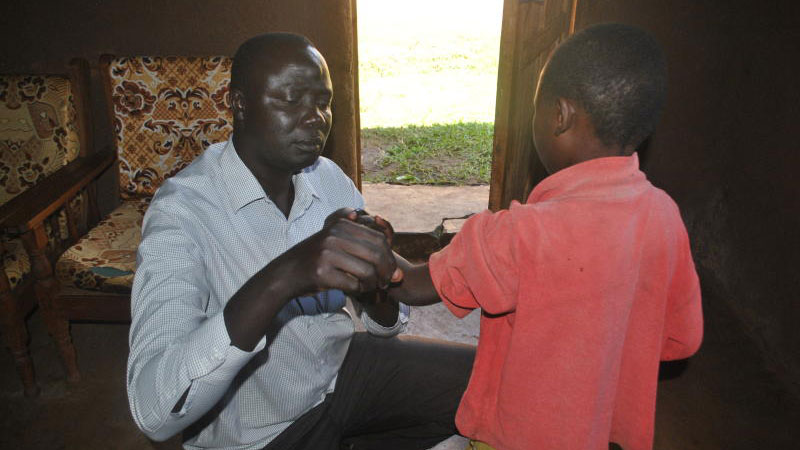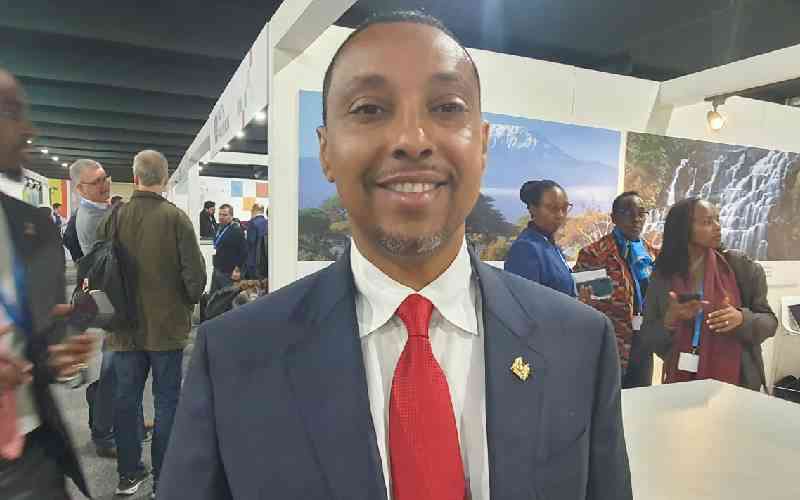
Members of a clan are in despair after losing more than 30 people in a span of three years to a condition that manifests itself through loss of eye sight, weakening of legs and hands.
The victims of the Bamilonje clan from Khayega location, Shinyalu, Kakamega County, also lose memory before dying prematurely.
Currently, at least 40 clan members including children have been affected.
Though medics say the condition can be managed, the victims cannot afford specialised medical attention.
The affected kin say they do not feel pain while medical tests fail to show any ailments.
Women die faster than men from the time symptoms manifest. They rarely live for more than five years compared to men who go up to between 10 to 15 years.
The child mortality rate in the clan is also high with victims dying between one and three years after the symptoms manifest.

Joan Shisakha, 28, a mother of three has been grappling with the condition for five years now. Her husband abandoned her shortly after she developed the condition.
Ms Shisakha lost a child to the condition three years ago while the other one succumbed recently after the symptoms manifested five months ago when she was 8 months old.
To move around, she crawls while she has partially lost speech and eyesight. Shisakha said one day she woke up and started seeing blurred images and was unable to speak well. “I can only see a person who is 10 metres away,” she said.
The victim’s hands and legs also started weakening in May 2014 and after a month she was completely paralysed.
Patrick Mbakaya, 52, moved from Shinyalu to Ebukhulunya village, Mahiakalo ward, hoping to escape from the condition.
However, he developed the condition five years ago when working as a chef in a one hotel in Nairobi. Mr Mbakaya also started seeing blurred images and his body weakened forcing his employer to relieve him of his duties.
His hands and legs became limp a year after losing eyesight. Tests in different hospitals did not return positive for any disease. Of the 11 children he sired with his two wives, six died before celebrating their 10th birthday.
Mbakaya’s brother, Richard Muhati Shiabutsi, 65, is also affected and walks with the aid of crutches while his elder son developed the same complications four years ago.

Vulnerability
Mr Shiabutsi said after losing eyesight, his legs started swelling and ooze fluid. His condition started 10 years ago.
“When the fluid is oozing out of my legs, I feel dizzy and then fall unconscious but when taken to hospital, I am told I have no ailment,” he said.
Cenzas Sechero, 49, who hails from the same clan got married in Matunda, Lugari Sub County and developed the condition five years ago. She has since lost two children to the same condition.
Medical experts have ruled out the possibility of genetics in what is bedeviling members of the clan.
Dr Gordon Nguka, who has on many occasions visited the victims, has advised them to undergo Magnetic Resonance Imaging (MRI) to ascertain what is ailing them.
Dr Nguka, a Dietetics and Pediatric Physiology specialist said the victims’ limited access to resources and poor sanitation could be exposing them to the condition.
“The families are vulnerable to various ailments including infections by the pathogenic micro-organisms like bacteria, viruses and fungi including congenital malformations as a result of poor nourishment of the pregnant and lactating women,” he said.
“These conditions may lead to an ailing population with inherent social, economic and environmental vulnerability whose cure is in education for sustainable development,” he added.
He further noted that most affected families are living in houses made of cow dung which makes them susceptible to diseases such as salmonella, listeria and Escherichia coli, which are pathogens that can cause illness in human beings.
Muscle weakness
“Listeriosis is caused by listeria monocytogenes and affects people with weak immune system. The symptoms are muscle aches, fever and sometimes diarrhea and nausea. If the nervous system is affected, it may result to convulsions, confusion and loss of balance,” he said.
Issah Kweyu, from the department of Health Promotions and Sports Science at Masinde Muliro University of Science and Technology suspects the victims could be suffering from poliomyelitis which causes muscle weaknesses resulting to inability to move mainly affecting the legs but sometimes, the hands, neck, head and the diaphragm.
“Many people recover if detected early but those with muscle weakness about 2 -3 per cent of children and 15 -30 per cent of adults die if unattended to. Sometimes flaccid paralysis may occur due to the degeneration of muscles,” Mr Kweyu said.
He said some victims got mild stroke which resulted in speech difficulties, paralysis and weakness of one side of the body forcing them to crawl.
Eileen Mulaa, a sports and nutrition scientist from the department of Exercise Science and Recreation Sports at Kenyatta University said the swelling of the legs and oozing of fluid from swollen legs is as a result of Edema.
Edema is inflammation of body tissues, which occurs when the small blood vessels (capillaries) leak fluid into nearby tissues making the body to swell.
“Peripheral edema usually affects the legs and ankles. Sometimes it can happen in the arms. The extra fluid gets out of the leg and is painful,” said Ms Mulaa.
She noted that the condition can be managed through physical exercises.
Mulaa said exercises relieve stress and anxiety for healthy bones and muscles and improves body flexibility and recommended that victims do physical exercises at least four times a week for 20-30 minutes.
 The Standard Group Plc is a multi-media organization with investments in media platforms spanning newspaper print
operations, television, radio broadcasting, digital and online services. The Standard Group is recognized as a
leading multi-media house in Kenya with a key influence in matters of national and international interest.
The Standard Group Plc is a multi-media organization with investments in media platforms spanning newspaper print
operations, television, radio broadcasting, digital and online services. The Standard Group is recognized as a
leading multi-media house in Kenya with a key influence in matters of national and international interest.











